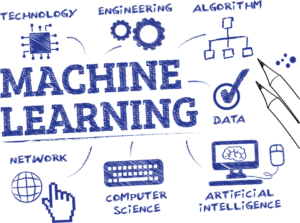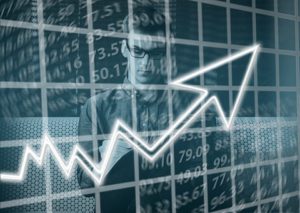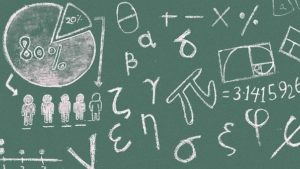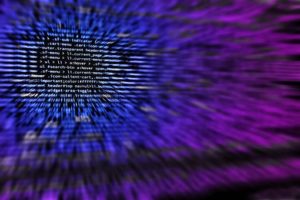The post What is the Difference Between a Data Scientist and a Data Analyst? appeared first on Magnimind Academy.
]]>While the prefix of these titles may lead many to believe that professionals holding these titles carry out the same functions, it isn’t really so. The job descriptions may look somewhat similar, but there’re key differences between the careers. In this post, we’re going to highlight the individual aspects of both data scientist and data analyst and how they’re related to each other.
1- Difference by definition

A data scientist refers to a professional who analyzes massive sets of data from a business standpoint and is responsible for predicting potential trends, exploring disconnected and disparate data sources, and identifying better ways to analyze information in order to help businesses make accurate and informed decisions.
A data analyst focuses on collecting, processing, and obtaining statistical information out of the existing datasets. They focus on developing methods to gather, process, and organize data to reveal actionable insights for present issues, and establishing the best way to demonstrate this data. Put simply, a data analyst is directed toward solving problems that can obstruct immediate improvements.
2- Difference by responsibilities

A data scientist and a data analyst may share similar job responsibilities to some extent, but some notable differences do exist. Let’s take a look at them.
Data scientist:
- Cleansing and processing of data
- Developing machine learning models and new analytical methods
- Finding new features by exploring the value of data
- correlating disparate datasets
- Identifying new business questions which can add value
- Data visualization and storytelling
- Identifying the root issues of an outcome
Data analyst:
- Analyzing and mining business data to discover patterns and identify correlations from different data points
- Implementing new metrics for identifying not so clearly understood business parts
- Coordinating with the engineering team to collect incremental new data
- Mapping and tracing the data from different systems to find out solutions to a given business problem
- Applying statistical analysis
- Designing and creating data reports to help stakeholders make better decisions
- Identifying partialities in data acquisition and data quality issues
3- Difference by skill sets

While both data scientist and data analyst positions require solid knowledge of mathematics together with knowledge of software engineering, understanding of algorithms and good communication skills, their actual skill sets differ significantly.
Data scientist skills:
- Programming languages like R, Python, SAS, SQL, Hive, Pig, MatLab, Spark, Scala etc
- Data visualization and storytelling
- Distributed computer frameworks such as Hadoop
- Machine learning and deep statistical insights
- Business acumen
Data analyst skills:
- Programming languages like JavaScript, HTML etc
- Data visualization tools such as Tableau
- Data storing and retrieving tools and skills
- Robust exposure to SQL and analytics
- Spreadsheet tools
4- Difference by pay packet

Data scientists earn substantially more money than data analysts. On an average, the starting base salary of a data scientist is around $110,000 while for a data analyst, it stays around $65,000. However, the salary of the latter depends on the type of the analyst they’re – market research analyst, financial analyst, or operations analyst, among others. Learning data science is the first step for these jobs.
5- Difference by job roles

Both the groups are divided further based on their job roles.
- Data scientists are offered job roles like data developers, data researchers, data business and data creative people
- Data analysts are categorized into roles like database administrators, data architects, operations and analytics engineers
Which career is best for you – Data scientist or data analyst?

When you need to determine whether a data scientist or a data analyst career path would be the best for you, how will you proceed? We’ve already talked about the skills that are required to excel in both the positions, but there’re some other key factors that you should consider when choosing one of these two. These include your personal interests, your preferred career path, and your background. When you select the ones, you may know data science in 6 weeks.
1- Personal interests matter a lot

Do you have a keen interest in statistics and numbers? Or, is it computer science and business that keep you excited?
While a data scientist needs to have solid understanding of computer science, statistics, and mathematics, he/she also needs to have good business acumen. Apart from having robust presentation and communication skills, you need to be able to find opportunities, risks and trends in the data if your aim is to become a data scientist. In addition, communicating the findings in easy-to-understand formats should be one your key fortes.
On the other hand, work of a data analyst heavily encompasses programming, statistics, and numbers. They almost exclusively work in databases to reveal data points from complicated and sometimes, disparate sources. Also, a robust understanding of the industry they’re working in is something crucial for a data analyst.
2- Career path holds its fair share too

Where do you want to see yourself in the distant future? Apart from job responsibilities, as the level of values added by data scientists and data analysts differ significantly, so do their compensations.
Data scientists, who’re typically graduate degree holders, usually have advanced skillsets and come with more working experience. They are generally considered to be more senior that data analysts. As a result, data scientists receive healthier pay packets than data analysis professionals. And they can earn a yearly compensation between $110,000 and $163,500.
This compensation range comes down to $77,500 and $118,750 for data analysts. However, as their work encompasses databases mainly, they can increase their seniority and in turn, compensation by learning programming skills that are considered crucial in the domain. Once a data analyst gains substantial experience and acquires an advanced degree, he/she can easily move into better positions with increased compensations.
3- Don’t ignore your background

Though the positions of data scientists and data analysts may look somewhat similar, it’s the background, in terms of both educational and professional, that acts as one of the key factors when it comes to choosing one of them.
For a data scientist, a PhD or Master’s degree in mathematics, computer science, or statistics is desired. Add to it the desired professional experiences like working in statistical computer languages, working with data mining and statistical techniques, creating and working with data architectures, 5 to 7 years of experience in building statistical models and manipulating datasets, experience in using web services, and experience in working with distributed computing/data tools, among others.
At their core, most data analysts require a degree in statistics, mathematics, or business with an analytical bend of mind. Desired experiences usually include working with languages like Python, R etc, and working in agile development methodology etc.
Both the positions of data scientist and data analyst are considered highly coveted in today’s job landscape. You can certainly go for either one. Just be sure to consider the above factors to excel in your chosen trajectory.
Where the roles intersect

Though data scientists and data analysts aren’t two interchangeable roles, they hold a fundamental overlapping point – both of them draw insights from data. In the business acumen context, data scientists hold a richer skillset and have a deeper familiarity with advanced statistical modeling, Hadoop, machine learning than their counterparts in the data analysis domain. However, both professionals are capable of transforming data into insightful answers needed by business owners to take informed and better decisions. But the difference lies in their approaches and in the answers. Typically, a data scientist can help a business by formulating new questions that help it drive forward while a data analyst is able to answer critical business questions.
Final thoughts

Today, there’re lots of ways to become a data science professional, but the ideal move should be solidifying your educational background first, in terms of obtaining a Master’s or Bachelor’s degree. And then, there’re other ways that can help you sharpen your data science skills. Ideally, before you dive into a higher-education program, you should try to figure out the industry you’ll be working in to identify the most critical software, skills, and tools.
Whether you’ll be working as a data scientist or a data analyst, some business domain expertise will be required that will vary based on the industry. For instance, if you’re working in marketing, education, or business, you’ll require a different skillset than if you work in science, healthcare, or government. Once you’ve chalked out your desired industry needs, just do some research and you’ll find an array of professional development courses, bootcamps and online classes that can help you learn and hone the requisite skills. Apart from these, there’re data science certifications available as well that can strengthen your resume and in turn, help you get a healthier pay packet. Data science bootcamp in Bay Area might provide these options.
. . .
To learn more about data science requirements, click here and read our another article.
The post What is the Difference Between a Data Scientist and a Data Analyst? appeared first on Magnimind Academy.
]]>The post Top 5 Tips – Cracking Data Science Interview appeared first on Magnimind Academy.
]]>1- Strengthen Your Skill Sets:

Since data science is an interdisciplinary field, you need to strengthen your core skills that will help you sail ahead of your competitors. So, strengthen your mathematics skills (statistics, multivariate calculus and algebra), computer science skills (programming, data wrangling, and machine learning), and data communication skills (data intuition and data visualization). Data science training may develop your skills.
2- Master Data Science Tools:

This is another important step that involves mastering data collection and cleaning tools, programming tools (Python and R), as well as machine learning and modeling tools. In fact, these are the tools that will help you strengthen your skills that are relevant and important to sail through data science interviews.
3- Know Your Limitations:

Despite your educational qualifications and experience, you won’t know everything about data science. And that’s ok. Learn to accept your limitations and be prepared to admit you don’t know a thing or two if such questions are asked in the interview. Rather than acting as if you know everything, balance what you know with the humble attitude of discussing what you don’t. This will create a much better impression on interviewers than faltering on answering a question after saying you know it all. Learning data science improve career.
4- Be Prepared for The Interview:

Take time to craft your resume carefully (and update it, if necessary), and read the job description carefully to understand your job profile. If you have worked on some past projects worth mentioning, remember their intricate details to ensure you can talk about them confidently, if necessary. Checking out some sample questions online and practicing their answers, learning from other people’s experiences (based on their online/offline anecdotes), and making a list of a handful of questions that you can ask your interviewers are some others steps that you should include in your interview prep schedule. Business is expected craft forward workers.
5- Show Different Facets of Your Intelligence to Simplify Things:

Data science interviews aren’t just about showing how capable you are in proving a theorem or finding the solution to an equation. Instead, they are about showcasing various facets of your intelligence with a focus on abstraction and minimization. After all, simplifying things is the hardest thing to do. So, during the interview, show how passionate you are about simplifying things by breaking down your thought process into simple steps and rational actions. Learn tech giant with data science boot camp in Bay Area.
In addition to the above, you should do the following:
- Practice to speak clearly and confidently
- Indicate how comfortable you are in working as a team member and collaborating, and
- Control the conversation as much as you can
Above all, remember to conduct yourself during the interview in such a way that tells why the organization needs you and can do better with you in its ranks. Image of future is different to the present. You should show that you are the best for this job, because you follow the novelty.
. . .
To learn more about data science requirements, click here and read our another article.
The post Top 5 Tips – Cracking Data Science Interview appeared first on Magnimind Academy.
]]>The post How Essential Is a University Degree for Finding a Job in Data Science? appeared first on Magnimind Academy.
]]>The increasing buzz around data science has already attracted a lot of computing enthusiasts and the demand for data science professionals seems to go up with each passing day. In addition, the gap between the availability of skilled professionals and the demand is quite substantial, which makes it even more of an exciting career path.
In this scenario, if you are planning to step into the field of data science, what steps should you follow for business or career? Do you actually need to have a university degree to get a decent job in this field? In this post, we’ve tried to identify whether a university degree is an absolute necessity or not.
But before we begin, here’re some questions that you must ask yourself prior to proceeding ahead.
- Do you enjoy programming and statistics(Coding, Data Science, Machine Learning etc)?
- Would you be okay with getting a job in data science, even if it pays an average salary?
- Do you want to work in a field where you need to be learning constantly about the latest technologies(AI, Blockchain etc)?
If your answer to all these is “Yes”, then you’re on the right track.
First of all, the simplest explanation of what data science entails is the process of accumulating, analyzing, and interpreting data – all with the help of technology. So, what will you be actually doing as a data science professional?
Probable job responsibilities

You’ll probably be solving different problems by implementing machine learning to big data. Here’re some examples:
- Identifying data anomalies
- Predicting customers’ possibility to cancel subscription
- Clustering customers into relevant groups, and
- Calculating revenue projections, among others
You will get to experience different kinds of problems and to be proficient, you need to have a solid foundation in statistics, math, and coding, apart from continuous learning and adapting. Let’s have a look at these skills in a little detail.
Key skills
1- Statistics

Statistics is the part of data science that deals with analyzing and interpreting data. Having a robust understanding of the methods used in statistics will help you in measuring probability, which refers to the likelihood of events. These phenomena help interpreting the future technology (like AI, machine learning…)
2- Mathematics

Core mathematical foundation acts as a base for learning other important skills needed to become a data science professional. You should be comfortable in dealing with mathematical concepts. These concepts;
- linear algebra,
- regression,
- probability theory,
- core ML methods,
- numerical analysis.
If you’ve a practical bent of mind, you may find math more enjoyable in the context of data science where the data represents real-world concepts and spring board data science review.
3- Coding in Bootcamp

You can only comprehend a well-categorized chunk of data if you know the language in which data communicate. A good coder may not be a data science professional, but a data science professional is surely a good coder. You can have an excellent future when you attend the data science in 6 weeks with well known professional lecturer in Silicon Valley.
Conclusion
Apart from the above, there’re some obvious skills like thorough knowledge of database, data munging (popularly called data wrangling), machine learning etc, which are needed to become a data science professional. While getting a university degree in data science is a fast and sure way to step into the field, there’re some institutions and companies that offer online courses on both data science specializations and fundamentals(such as Magnimind Academy). When it comes to cracking a job interview in data science, you may find that some companies clearly mention that they’ll only encourage candidates with university degrees. However, a lot of companies prefer to hire candidates who have adequate knowledge in the field even when they don’t have a university degree.
. . .
To learn more about data science bootcamps, click here and read our another article.
The post How Essential Is a University Degree for Finding a Job in Data Science? appeared first on Magnimind Academy.
]]>